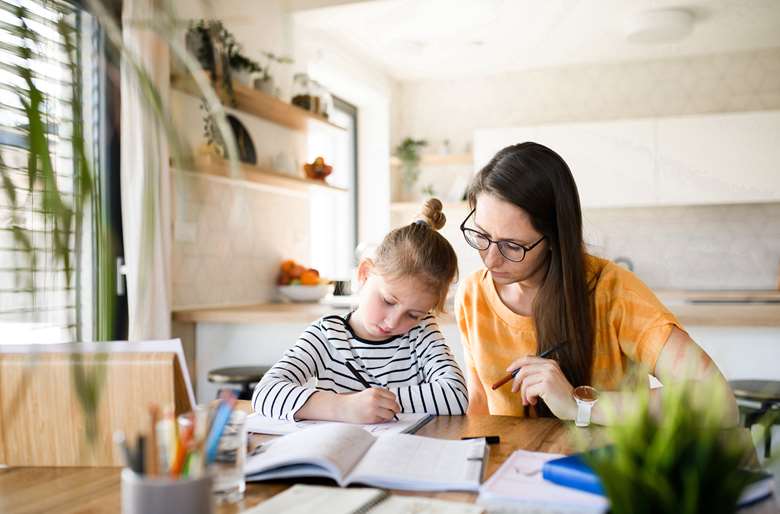Coronavirus: Bulk of childcare and household chores fall to mothers in lockdown
Nicole Weinstein
Wednesday, May 27, 2020
Working mothers are bearing the brunt of the new workload during lockdown, a new study has revealed

According to a report published today (27 May) by the Institute for Fiscal Studies (IFS), mothers have taken on far more childcare and household chores than fathers since lockdown began in March. Not only are they more likely than fathers to be spending their work hours simultaneously trying to care for children, they are also far more likely to be interrupted during paid working hours.
The online survey of 3,500 families in England looks at how two opposite-gender parents are sharing paid work and domestic responsibilities during the crisis. For most parents, school and childcare closures have meant that children are at home, and requiring care, for at least an extra six hours a day.
It revealed that mothers are looking after children during an average of 10.3 hours of the day - 2.3 hours more than fathers - and are doing housework for 1.7 more hours than fathers. Mothers also spend more time than fathers on ‘active childcare’ - home schooling or baking - as well as ‘passive chidcare’ - keeping an eye on them while they played.
However, fathers are, on average, now doing childcare during nearly twice as many hours as in 2014–15. This means that fathers are now taking on a greater share of household responsibilities than they were before the crisis and it might have a long-lasting impact on how couples share childcare responsibilities.
Lucy Kraftman, research economist at IFS, said that the only set of households where we see mothers and fathers sharing childcare and housework equally are those in which both parents were previously working, but the father has now stopped working while the mother is still in paid work.
However, she added, ‘Mothers in these households are doing paid work during an average of five hours a day in addition to doing the same amount of domestic work as their partner. The vast increase in the amount of childcare that mothers are doing under lockdown, which many are juggling alongside paid work, is likely to put a strain on their well-being.’
The survey also reveals that mothers are more likely than fathers to have left paid work since February and among mothers and fathers who are still in paid work, mothers have seen a bigger proportional reduction in hours of work than fathers.
Alison Andrew, senior research economist at IFS, warned that both of these factors mean that mothers now are only doing a third of the uninterrupted paid-work hours that fathers which could potentially lead to a ‘further increase in the gender wage gap’.




